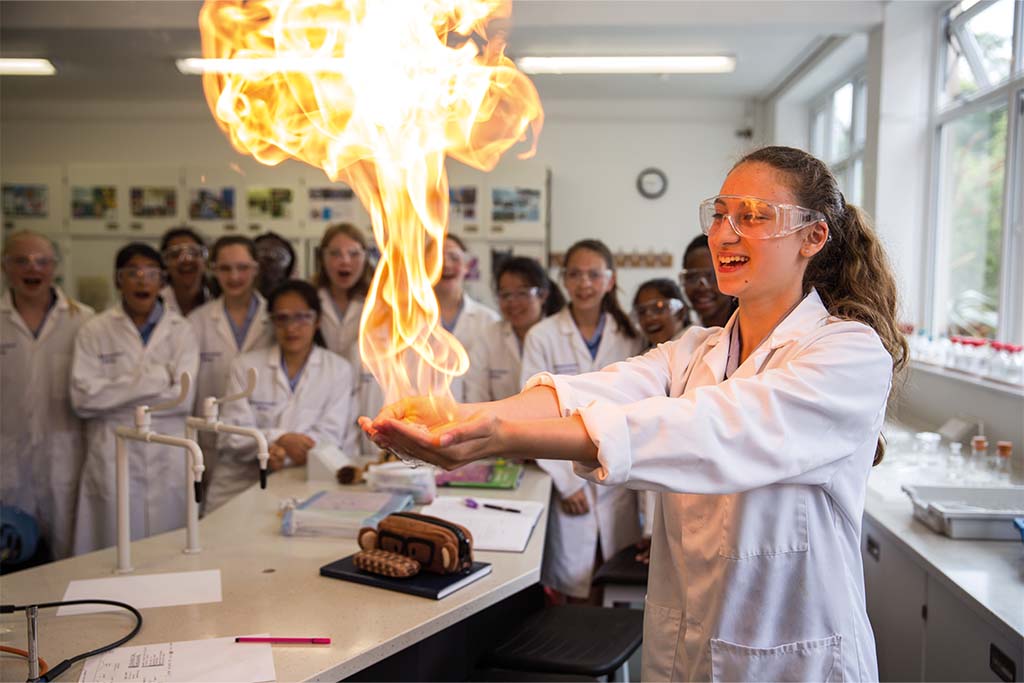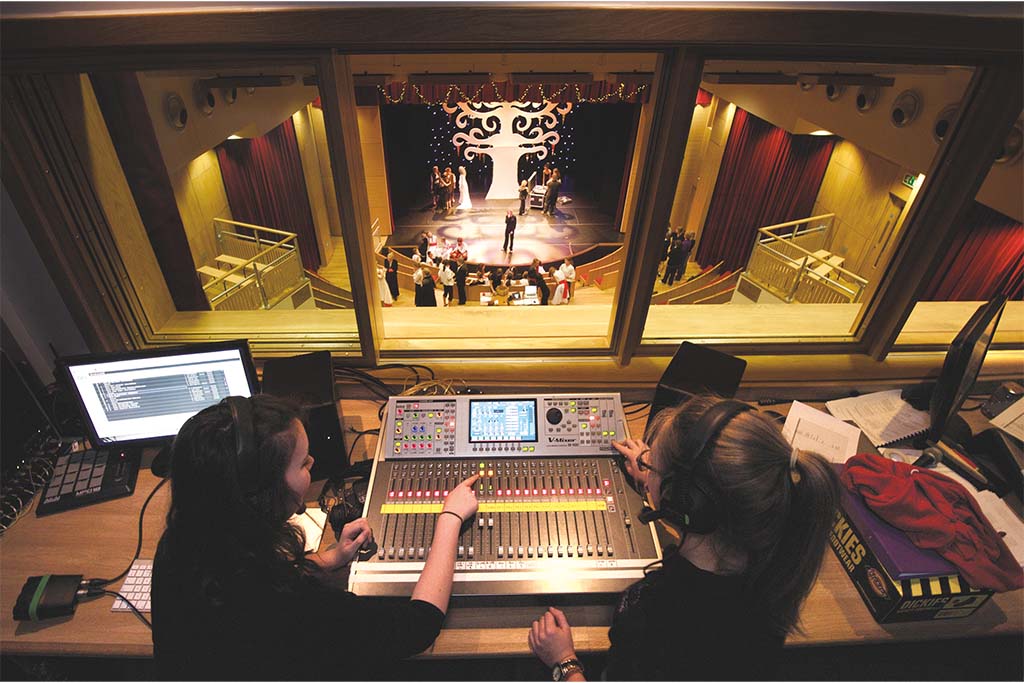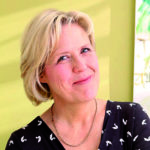Focus: Brave New World
By
3 years ago
Focus: Medics, engineers and cyber geeks are the armies of today’s frontline and we need more of them as the pace of change accelerates.

Focus on…. A Call to Arms
Medics, engineers and cyber geeks are the armies of today’s frontline and we need more of them as the pace of change accelerates, say professionals and educationalists
The Journalist: Victoria Lambert considers how schools are preparing pupils for a workplace barely conceived

One of the greatest lessons we have learnt in the past months has been how the modern world is presenting new challenges for humanity. From pandemics like Covid-19 – so easily spread thanks to international trade and mass tourism – to new challenges brought about by climate change, from wild fires to flooding.
Meanwhile, there are exciting opportunities too. Look at the dynamism of entrepreneurs such as Elon Musk with his vision for space travel or Jeff Bezos, whose $10 billion Earth Fund has been set up to invest in the environmental sector.
No wonder our children no longer aspire to the old traditional careers. Why be an accountant or a firefighter when you can become an astronaut or an activist?
And those are not pipe dreams; to take on the challenges of this century, there are calls for 21st-century armies, consisting of engineers and medics, scientists and cyber geeks. US universities are already expanding existing courses to cover not just space science and engineering but also space entrepreneurship, management and law.
According to global accountants, PricewaterhouseCoopers (PwC), in its recent Workforce of the Future report, almost half of us (47 per cent) think that traditional employment will not be around by 2030 and instead, we will all have our own personal ‘brands’, selling our skills to those who need them.
The World Economic Forum’s Future of Jobs Report 2020 confirms that the most in-demand occupations or specialties did not exist 10 or even five years ago, and warns the pace of change is set to accelerate. It quotes the ‘Shift Happens’ theory that 65 per cent of children entering primary school today will ultimately end up working in completely new job types that don’t yet exist.
Fortunately, for pupils educated in independent schools, these schools have always been able to offer flexibility in a wide range of subjects, expertise and experience. So how and where is that vision being expressed?
At St Paul’s School, West London, a dedicated Careers and Universities department exists to prepare pupils for the next steps in their education. The world of work has always been a priority for the school. Head of Careers, Rebecca McGreevy explains: ‘We have established a new student-led careers society which aims to demystify industries and career routes by hosting weekly ‘career conversation’ events. These informal events invite school community members to speak about their career pathways and their views on the future of their work.’
‘We cannot know the whole future. What has become crystal clear is that skills are what will give agency in the future.’
Rebecca tear, headmistress at badminton school
Rebecca Tear, Headmistress at Badminton School in Bristol says her students are already going on to a wide range of university choices: from Film Making to Medicine, Architecture to Marketing and Neuroscience to Economics.
‘Entrepreneurship is something that students are keen to engage with,’ says Tear. ‘From our Year 7 and 8 entering our Student Initiative Fund competition to win seed funding for their project through to taking part in the national Tycoon Enterprise Challenge where they create a business plan, manufacture a product and bring it to market.’ A Badminton team called The Citrus Way won overall in 2020.
At St Catherine’s School Bramley, Headmistress Alice Phillips explains that students are exposed to the continuous developments across many disciplines and career sectors. ‘As well as careers events and lessons,’ Phillips says, ‘academic departments highlight new developments and applications of these.’
The Design and Technology classes, for example, explore uses for exciting new materials and IT students attend the annual Teen Tech event to see how technological change is impacting on business products and processes. Sixth form Economists recently attended the annual Royal Economics Society Lecture which this year focused on Digital Disruption and scientists learn about advances in pharmaceutical development, a significant topic at this time especially.
‘By recognising that change is normal we encourage a growth mindset. As a result, the changing world of work becomes an exciting opportunity, not something to be feared,’ explains Phillips.
At Badminton, future career building skills also begin early: ‘We start in our Junior school, working with students to identify their character strengths and how they inform their ways of working and communicating. In the Senior School, we then build through our own Badminton Baccalaureate which focuses on activities and skills beyond the classroom, encouraging pupils to explore opportunities and get practically involved to appreciate how skills can be applied, how classroom knowledge can support real life applications and to explore a range of fields to see if they are of interest to the individual.’
Additionally, says Tear, the school also follows the A-level Mindset course known as VESPA which helps students establish different ways of thinking. ‘Students are encouraged to think about Vision (motivation), Effort, Systems (organisation), Practice and Attitude.’
With so many unknowns, which subjects will dominate A-level choices? The sciences plus computer science will be important, says Ed Elliott, Head of The Perse School, Cambridge, ‘as they have been for many decades. Hopefully, the amazing success of Covid vaccines from concept to delivery in less than a year will inspire children to study science – as success here can self-evidently make the world better and save lives.’
What about those young people who excel in the arts and humanities, though. Will they be left behind?
‘Not at all,’ says Elliott. ‘In an increasingly digitised and automated future, the jobs of tomorrow will be jobs that humans can do better than machines. These are roles that will have large creative and original components, or where skilled judgements are needed, or where emotional intelligence and the ability to read other humans and their feelings are key.
‘So, subjects like art and music will be important as these creative disciplines are not easily automated. Some educational tasks such as marking may be automated, but teaching will always require humans to get the best out of other humans.’
Alice Phillips agrees, adding: ‘languages will always be important but not just as evidence of linguistic ability. When studying languages at A-level and at university, the focus is on understanding the culture as much as the language. Within the world of business, it is widely recognised that cultural understanding is key to building internal and external relationships in order to achieve long term competitiveness and success.’
Overall, what may matter most is breadth of learning. At St Paul’s, there is a focus on skills which are transferable across any industry or career such as teamwork, communication, creativity, self-awareness, resilience and flexibility/adaptability, says Rebecca McGreevy.
‘The careers department collaborates with subject departments, wider societies and co-curricular activities,’ she says, ‘to ensure students can connect their experiences at school to possible future pathways.’ The school has an established entrepreneurship programme which includes a business incubator programme, ‘Start it PRO’, which this year has enrolled and funded two student start-ups, Armago and Fygo, as part of the commitment of St Paul’s to supporting those who choose non-linear career paths.

Ed Elliott adds: ‘As in the past, so in the future it is important that we educate children in a broad range of skills and knowledge. Children must also study history in order to gain perspective and better understanding.’
Rebecca Tear points out: ‘We cannot know the whole future. What has become crystal clear is that skills are what will give agency in the future. I set great store by communication and creativity, plus also coaching – the willingness to be reflective, seek feedback and to do the same for others.’
This ability to iterate to improve is a quintessential entrepreneurial tool, she points out. ‘The willingness to build and develop enables success.’ Phillips sees the skills of greatest benefit as those ‘which equip our students to harness the change such as problem solving, innovation and adaptability. They need to be ready at all times for change and not afraid of it.’
So where does this leave specific careers advice? ‘Rather than thinking in the abstract,’ says Elliott, ‘it is vital to think relatively and match person to job type. Success and happiness occur when you have round pegs in round holes, and young people embark on career paths that play to their strengths, qualities and interests.’
And where can parents fit in? Rebecca McGreevy says, ‘our alumni and parent networks are important to us in providing advice and speakers for our pupils to showcase a variety of industry sectors. We also have St Paul’s Connect which allows members of the community to connect professionally and find mentors.’
At St Catherine’s, parent body and all alumnae are combined into the St Catherine’s Association giving one network providing access to those at all career stages. ‘The younger alumnae, who are at university or taking first steps into careers,’ says Phillips, ‘can and do provide useful insight into the latest developments. However, it would be a folly to write off our parents, many of whom are in senior positions within innovative organisations.’
She adds: ‘Our overall aim as a school is to send our girls out with confidence that they can face any challenges or innovation in the world of work, and view change as an exciting opportunity, not a threat.’

READ MORE FROM AUTUMN/WINTER 2021
Focus: Safeguarding Our Future | On the Sofa with Frances Edmonds



